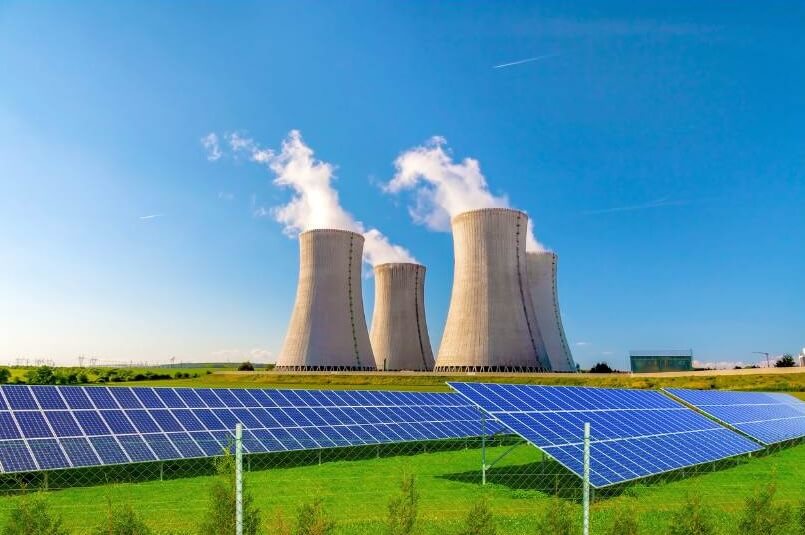What are the pros and cons of solar panels? Solar energy stands out as a promising solution for sustainable power. However, like any technology, it comes with its own set of advantages and disadvantages. In this blog post, we will delve into the various aspects of solar energy, including its benefits, drawbacks, and essential considerations such as cost, maintenance, and energy payback time.

Advantages of Solar Energy
One of the most compelling reasons to invest in solar panels is the potential for substantial savings on your electricity bill. By generating your own power, you can significantly reduce or even eliminate your home’s electricity cost. Solar panels capture sunlight and convert it into electricity, offering a long-term solution for decreasing energy expenses.
Moreover, solar energy helps in reducing pollution. Unlike fossil fuels, solar power generates electricity without emitting harmful greenhouse gases. This contributes to a cleaner environment and combats climate change. The reduction in emissions is a significant advantage, as it directly impacts air quality and public health.
Another advantage is the low maintenance requirement of solar panels. Once solar panels are installed, they need minimal upkeep. Regular cleaning and occasional inspections are usually sufficient to keep the system running efficiently. This low maintenance translates into convenience and further savings over time.
Disadvantages of Solar Energy
However, solar energy does come with its challenges. The initial cost of installing solar panels can be high. While prices have dropped over the years, the upfront investment remains significant. It’s important to weigh these costs against the long-term savings on your power bill. Thankfully in Australia, we have solar rebates and green loans to help alleviate the upfront cost of installing solar panels.
Embodied energy is another factor to consider. This term refers to the amount of energy required to produce and install solar panels. Although solar energy reduces operational emissions, the production phase involves energy consumption and resource use. Thus, while solar panels are environmentally friendly in operation, their production still has an impact. This can be easily countered however by the energy payback time for solar panels.
This is the period it takes for a solar system to generate the amount of energy equivalent to that used in its production. Typically, this time ranges from 1 to 4 years, depending on factors like location and panel type. Thus, while solar panels offer long-term benefits, it may take a few years to see the full environmental and financial return.

The life expectancy of solar panels is generally around 25 to 30 years. However, their efficiency can decrease over time. While most panels still perform well after this period, they may not produce as much power as they did when new. As a rule of thumb, solar panels lose around 1% of the power rating per year. Consequently, it’s important to consider this gradual decrease in efficiency when planning your solar investment.
Warranties and Lifespan
Solar panels usually come with warranties ranging from 10 for product to 25 years for performance. These warranties cover performance and manufacturer defects. It’s crucial to understand the specifics of these warranties to ensure you are protected against potential issues. Additionally, many manufacturers offer performance guarantees, promising a certain level of efficiency over the lifetime of the panels.
Cost and Financial Considerations
The cost of solar energy systems has decreased over the years, making them more accessible to homeowners. Government rebates can further offset the initial expense. Despite these financial aids, the initial investment can still be daunting. However, considering the long-term savings on energy bills, the cost often balances out over time.

Pollution Saving and Emissions
Solar energy systems contribute significantly to reducing pollution. By replacing fossil fuel-based power sources with clean solar energy, you lower your carbon footprint. This reduction in emissions supports global efforts to combat climate change and improves overall air quality.
Maintenance Requirements
Maintenance of solar panels is minimal, but not entirely absent. Keeping the panels clean and free of dirt ensures optimal performance. Regular inspections can help identify and address any potential issues before they become major problems. This low maintenance requirement makes solar panels an attractive option for many homeowners.
Conclusion
In summary, solar energy offers a range of benefits, including substantial savings on power bills, reduced pollution, and low maintenance requirements. However, it’s essential to consider the initial costs, embodied energy, and energy payback time. Understanding the warranties, lifespan, and ongoing maintenance needs can help you make an informed decision. While solar panels present an excellent long-term investment in terms of environmental impact and financial savings, they also come with certain disadvantages. Weighing these pros and cons will guide you in determining whether solar energy is the right choice for your needs.